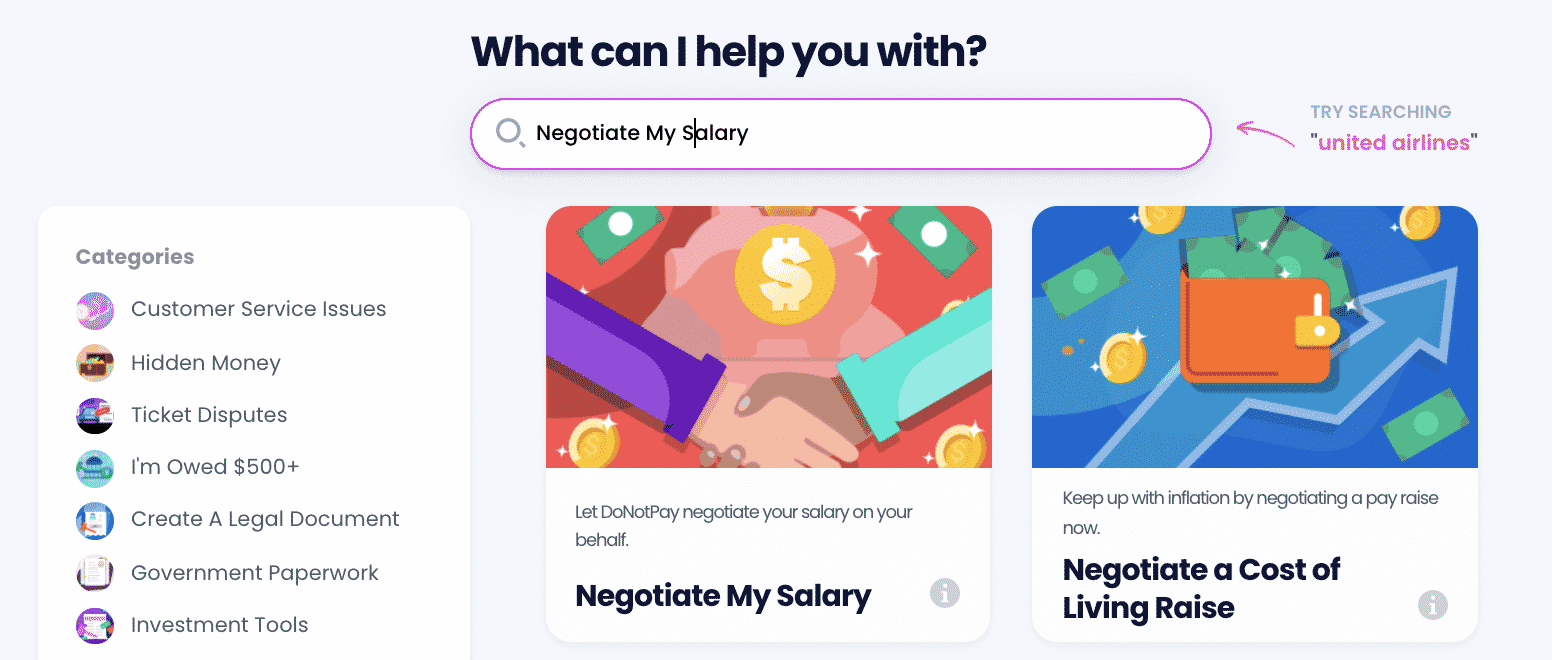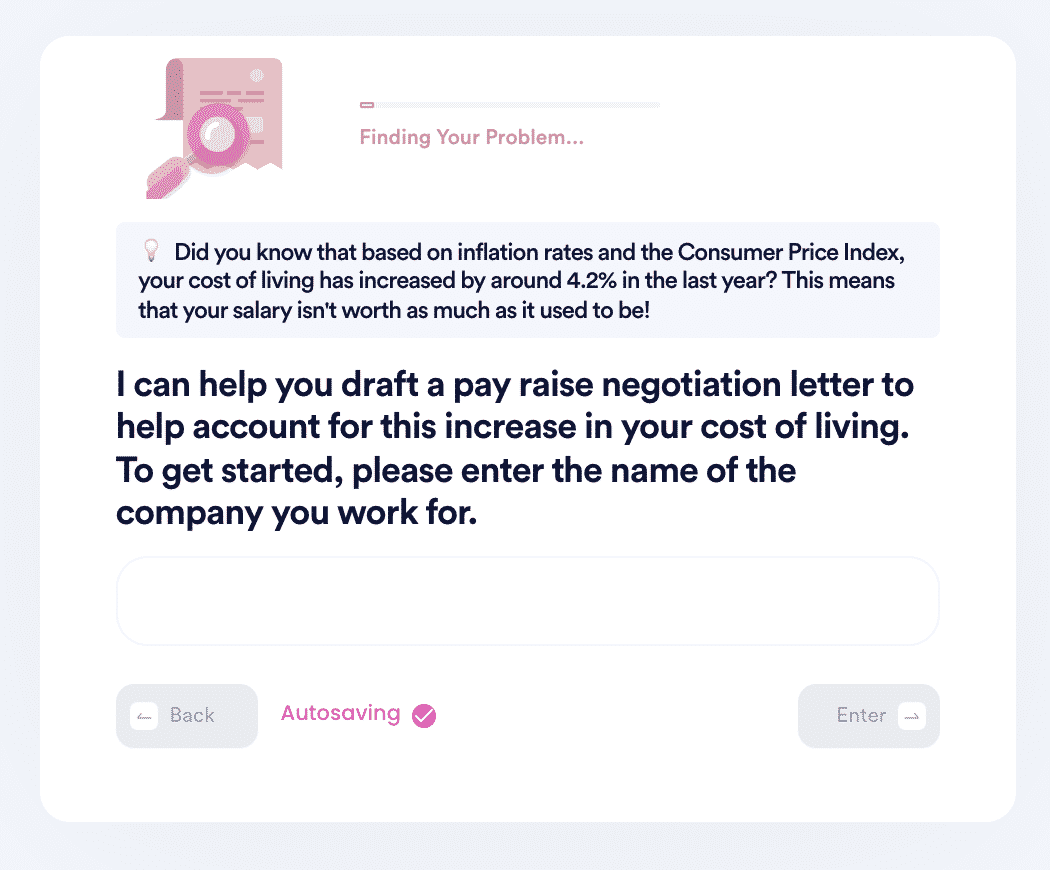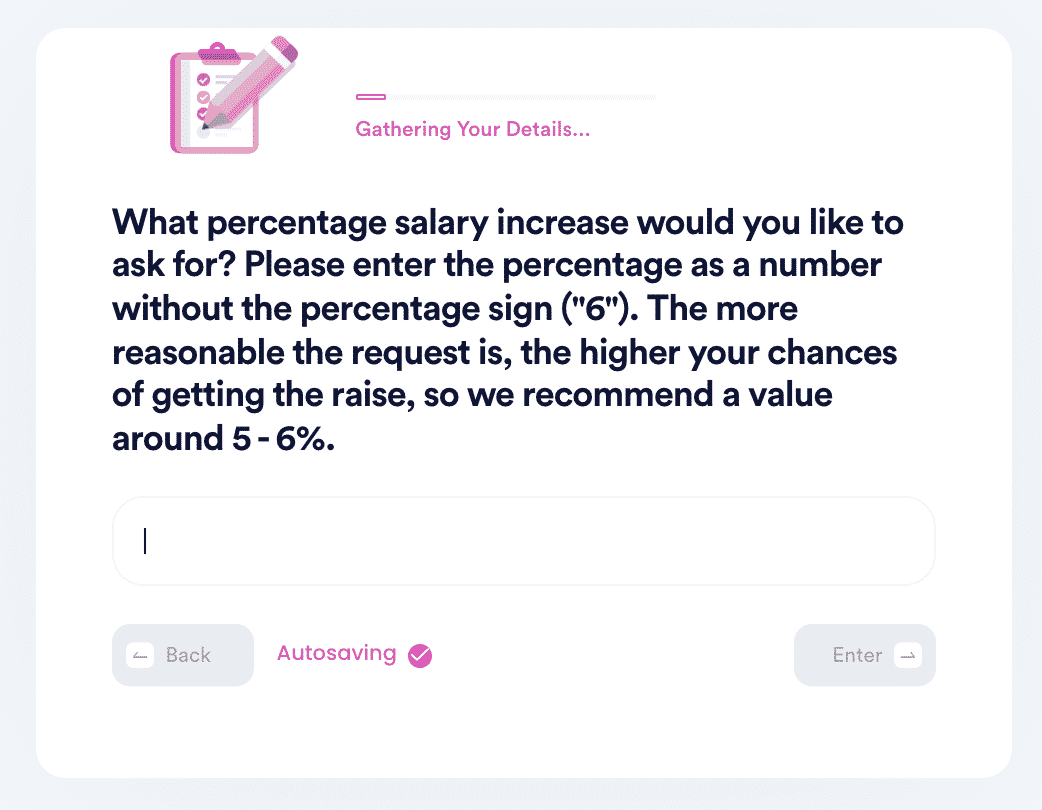How to Increase My Salary as a Teacher
Being a teacher is one of the most honorable professions in America. Unfortunately, it is also one of the most underpaid and underappreciated jobs in the country.
Learning will prove beneficial as inflation continues to soar. Unfortunately, there are countless regulations governing school districts making it complicated to determine who would pay for a teacher pay increase. Many teachers don't know how to ask for a raise and hit a dead end, finding themselves waiting for a meager cost of living adjustment.
How to raise teacher pay is an ongoing struggle in many parts of the country. Many teachers get frustrated by not getting a raise and leave the profession altogether because they failed to learn how to negotiate their salary. Others find the pay structure complicated and don't understand how often they should get a raise or when to ask for a raise if it doesn't happen automatically. So, what can we do to raise teacher pay?
DoNotPay believes it is crucial to help educators learn how to increase teacher pay in a state they want to teach. We want to provide you with the necessary tools to continue working in your chosen field, helping you learn how we can increase teacher pay and get the salary to which you are entitled. We can show you how to ask for a raise and provide you with the necessary information to keep earning more money as you advance in your teaching career.
What Is A Solution To Help Increase Teacher Pay?
Knowing how to increase pay as a teacher in a public school is difficult. School districts constantly try to find innovative ways to see what can .
Who would raise teachers' pay is the question that many ask, making salary negotiations on an individual basis irregular. Many educators wonder how high school teachers' pay increases or why there was a sharp increase in pay of a fellow employee?
To determine how to increase teacher salary, you must first look at the teacher contract. A pay scale structure typically bases salaries on educational accomplishments and years of teaching experience.
The best time to negotiate salary increases as a teacher is when accepting a new position in a different school district. Here are a few tips to help you along the way:
| Know When to Negotiate | Schools typically hold an intense interview process, receiving multiple applications for a single position. If you are selected for the role, chances are high you will have bargaining power since the school considered you the best candidate for the job. Wait until you receive the offer before starting the salary negotiation process. |
| Have a Thorough Understanding of The Average Salary | Do some research to learn how much the average teacher salary is for the district you are applying for. The information is public record, and there are several online websites you can access to see what to expect as compensation for the available position. If the salary offered is below the average pay rate, you will have room to negotiate a higher starting wage. |
| Learn About the School District Where You Are Applying | If a school district is struggling financially, there will usually not be a lot of room for negotiation. You can ask about the benefits package and any other bonuses that may help you decide if the job is worth taking. |
How Much of a Raise Should a Teacher Get?
According to Education Week, the National Education Association says the national average teacher salary in 2020-21 was $65,090.
Teachers in New York, California, and Massachusetts received the highest salaries, averaging $86,648. The lowest-paid teachers in the nation are from South Dakota, Florida, and Mississippi and receive an average annual salary of $49.077.
A new teacher can expect to earn approximately $41,163, however, there are more than 6,100 districts in the country that offer a starting salary of less than $40,000.
The following factors contribute to the school district's inability to offer wage increases:
- Rising Healthcare Costs
- Overburdened Pension Funds
- State Cuts to School Spending
Over the past decade, the national average has only increased by 0.9% when adjusting for inflation. These issues make it very difficult, but not impossible, for teachers to see an increase in their salaries.
How to Increase Teacher Salary on Your Own
There are several ways you can try to get an increase in pay on your own as a tenured teacher, but it will be time-consuming and often very frustrating. But, if you have the energy to do the research, it is possible by following a few strategies.
-
Review Your Contract
The first step is to read and understand your teacher contract, which contains a salary schedule for your district. Examine the structure and see if you can find out how to increase teacher salary payments. Most teachers receive more money the longer they work in the position. Although it has become harder to stay dedicated to the teaching profession, staying in the role is a guaranteed way to make more money.
-
Cost of Living Adjustment (COLA)
The school district and teachers union negotiates all cost of living adjustments, so you do not have much say in the outcome. The amount varies from year to year based on numerous factors. It is typically a minimal increase, but since every little bit helps, it may be worth checking out to see if you have a raise coming your way.
-
Educational Credit
How much does a teacher’s pay increase for educational credits? Taking a few college credit classes can result in higher pay for teachers, so if you have the energy to go back to school yourself, you may be able to negotiate a higher salary. Referred to as "column moves," teachers can experience a dramatic salary increase. Look at your contract and see how many credits you need to get a raise.
How to Increase Teacher Salary With the Help of DoNotPay
DoNotPay takes the guesswork out of salary increases and goes right to the heart of the matter. We can show you how to negotiate a salary increase over the phone or via email and even help you determine how much of a raise you should ask for.
How to Negotiate Your Salary Using Donotpay
All you have to do is:
- Search “negotiate my salary” on DoNotPay.

- Enter the name of your company and the industry you work in, so we can find the right wage statistics for your role.

- Answer a series of questions regarding your qualifications and achievements, relocation expenses, and other job offers if applicable.

- Enter the new base salary you would like to request.

And that's it! Once the information is finalized, DoNotPay will generate an official salary negotiation letter that you can then email or present to your employer.
What Else Can DoNotPay Do?
The easy-to-use automated system can do so much more than just show you . Every common problem that arises can be tackled with the help of DoNotPay. A few examples of what we can do include:
- Canceling Subscriptions
- Reducing Property Taxes
- Showing You How to Fight Workplace Discrimination
- Help You Request Chargebacks and Refunds
DoNotPay is available any time of day or night and can help you resolve issues with just a few clicks of a button from your home computer. We can help you start making more money and provide you with information to succeed on your chosen career path.
 By
By